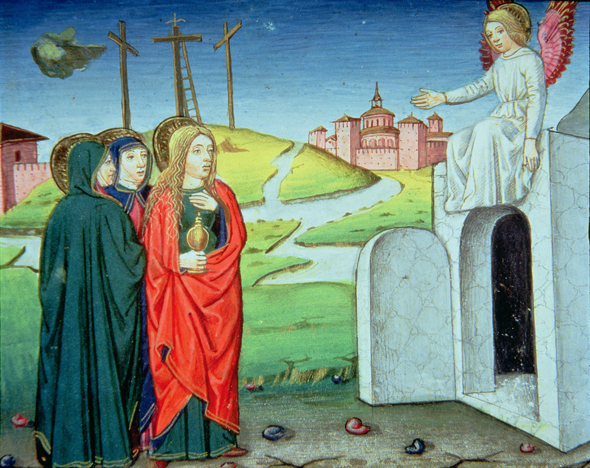
By Father James Rodriguez
“IT MAKES a big difference whether someone is dead or alive.”
With these words, Luke Timothy Johnson opens his book, “Living Jesus: Learning the Heart of the Gospel” (HarperOne, 2000). It is a stunning, albeit simple assertion, and it is at the heart of the explosion of grace celebrated by over one billion believers like you and me this day. Jesus is alive! Jesus is alive!
Just as the trees around us are in springtime bloom and the birds have returned to their nests, filling the air with their song, the Lord who died in what appeared to be abject failure and ignominy has risen and dies no more. Hell trembles with fear, and we with rejoicing.
St. Peter delivers powerful words in the first reading, appealing to what the people have seen and heard: “You know what has happened…”
It is fitting for us, 2,000 years later, to pause at these words. Do we know what has happened?
This is the same Peter who, on the first Holy Thursday, said: “I do not know the man.”
He was speaking truthfully, since true knowledge of Jesus transforms us into witnesses. One could argue that Peter needed this experience of suffering and weakness to come into direct contact with his own true self, to know his true face, and his utter need of God.
We tend to shy away from such painful experiences, our personal crosses, yet God can take the worst of our decisions and bring about beautiful new life. St. Peter emerged from his personal failure renewed and was ultimately able to give his life when the time came because he finally knew the man Jesus. Both men suffered death “by hanging on a tree,” evoking imagery from Genesis. No longer is the fruit of this tree, and the knowledge that comes with it, prohibited. Now we are called: “Take this, all of you, and eat of it.”
It is because of God’s overwhelming generosity and kindness we can appreciate each day as “the day the Lord has made,” rejoicing with the psalmist in appreciation of the gift each new day brings.
This day, as we commemorate the Resurrection of the Christ, we are reminded that life and goodness have the final victory in God’s cosmic design, as well as in every individual soul that places its trust in Him. Carrying our burdens with eyes fixed on Him, feeling the nearness of death yet rejecting its tempting despair, we taste the glory of this present feast in all of its refreshing goodness.
In these very pages, five months ago, Msgr. Steven Ferrari wrote beautiful words thanking God for my assignment with him. In that time, I have been humbled by his example of sheer positivity under the shadow of the cross of human suffering and the mystery of human illness. Like the patroness of our parish, St. Therese, we were brought closer to God through shared suffering, and Alleluia is our song.
The Church grants two options for today’s second reading, both from St. Paul. The first is addressed to the Colossians, a challenge to set their sights higher in preparation for that great moment of our hope: “When Christ your life appears.”
The second option, from his first letter to the Corinthians, exudes Passover and Eucharistic overtones as he calls all Christians to see in ourselves “the unleavened bread of sincerity and truth.” Baked in the fires of suffering in this life we come to know the Lamb of sacrifice, and sing his praises through pure, holy lives.
St. John, recounting the most significant Sunday of his life, tells the story that is perhaps too familiar to us. If you read this article before Sunday, I encourage you to try to hear the amazing words as if for the first time. If you are reading my words after (hopefully not during!) Mass, I invite you to return to them, imagining what it must have been like for Mary Magdalene and the Lord’s other friends, still deep in the throes of sadness and grief, eyes swollen from tears shed.
She goes with great tenderness and love to do for Him what she could not do as He carried His Cross, to treat His wounds and anoint His body with oil. The tomb is empty, we know, but she could not have expected that, despite Our Lord’s own mysterious foretelling of exactly this outcome.
Peter and John run to the tomb, and could just as easily be you or me, dumbstruck in the mystery of God’s grace and absolute love. This love does not, indeed cannot, die. Rather it bursts open our stony hearts, revealing neatly folded burial cloths where our former selves once lay.
Like Peter, let us run to encounter Christ in the midst of our suffering. Like John, may we see and believe.
Readings for Easter Sunday
Acts 10: 34A, 37-43
Psalm 118: 1-2, 16-17, 22-23
Colossians 3: 1-4 or 1 Corinthians 5:6B-8
John 20: 1-9
Father Rodriguez is the parochial vicar at St. Teresa, Woodside.
